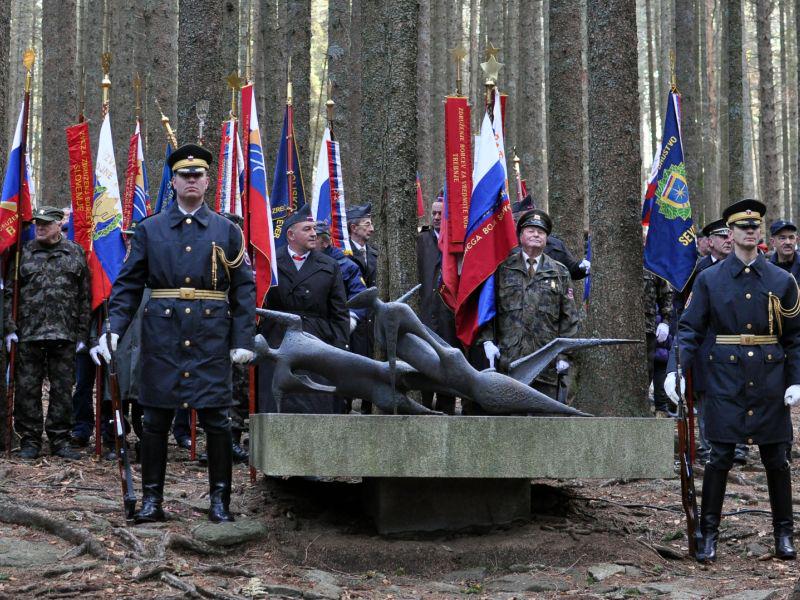
World War II brought extreme suffering to the people of Slovenia – but also acts of great heroism. One of the most remarkable stories of the war was the last stand of the Pohorje Battalion, a resistance unit that faced the Germans head-on on the Pohorje Plateau – and paid for it with their lives.
Formed in 1942, the battalion originally consisted of more than 90 fighters, including several women, who moved around the heavily wooded Pohorje Plateau and the surrounding towns and villages. Over several months, the unit mounted attacks on German-held areas, blew up railroads, and destroyed mountain huts that could be used by the Germans. They also fought the German forces directly, and as winter approached, they attacked a police station and burned down a factory.
Whether because of a betrayal or the enemy’s observation of supply lines, the Germans were able to determine the location of the Slovenian unit in early winter. The German commander ordered his troops to destroy the Pohorje Battalion.
On January 8, 1943, several German divisions, consisting of some 2000 men, surrounded the Slovenian resistance fighters and launched their attack. The battle lasted more than two hours. The Slovenians, who had not realized just how outnumbered they were, fought bravely. One women blew herself up with a hand grenade to kill as many of the Germans as possible. Unexpectedly, the Germans even had to use mortar fire. But in the end, the Pohorje Battalion stood no chance. Almost all its fighters were killed, while a few took their own lives rather than be captured. Some of the wounded Slovenians were killed by the Germans on the spot. Four members of the Šarh family – a father and his three sons – all lost their lives. Only one resistance fighter, a man named Franc Kunaver, survived the attack because he was too injured to commit suicide; he was later shot by the Germans as a hostage. The Pohorje Battalion was annihilated.
The Germans believed that their victory would deliver a crippling blow to the Partisan resistance. To their surprise, however, they only added to the determination of their opponents – and the Partisans soon had the upper hand in the Slovenian Lands.
After the war, the Pohorje Battalion became a symbol of heroism – and a Slovenian legend. A monument was built on the site of the final battle in the 1950s. Today, the fighters of the unit are remembered by people on all sides of the political spectrum as an example of the unyielding spirit of the Slovenian nation in the face of dismemberment and annihilation.

































































